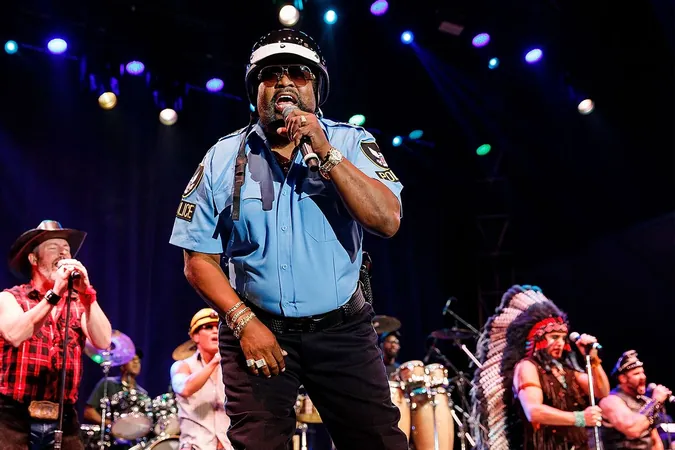
Village People’s Victor Willis Shocks Fans: ‘Y.M.C.A.’ Not a Gay Anthem! Defends Trump’s Use in Campaign
2024-12-03
Author: Chun
In a surprising turn of events, Victor Willis, the lead vocalist of the iconic disco group Village People, has come forward to defend the use of their classic hit “Y.M.C.A.” at Donald Trump’s campaign rallies, stating that the song is not a gay anthem as many have long believed.
Since 2020, the song has become a regular feature at Trump’s events, leading to substantial public backlash and an avalanche of complaints—over 1,000, according to Willis. However, in a detailed Facebook post, he explained his reasoning behind allowing the former president to play the song. Willis shared that it was out of compassion that he refrained from prohibiting its use, especially amidst a climate where many other artists were withdrawing their music from political campaigns.
Diving deeper into the discussion, Willis confronted the long-standing narrative that "Y.M.C.A." has been co-opted as a gay anthem. He pointed out that this assumption arose mainly because of his late writing partner Jacques Morali’s sexuality and the fact that some members of Village People were part of the LGBTQ+ community. Nevertheless, he clarified that his initial intention was far removed from this notion. “I knew nothing about the Y being a hangout for gays when I wrote the lyrics,” he confessed.
Willis went on to threaten legal action against media outlets that continue to label the song as a gay anthem, warning that it could harm the legacy of “Y.M.C.A.” He emphasized, “This must stop because it is damaging to the song,” revealing the weight of public perception on the artistry behind the music.
Interestingly, Willis acknowledged a silver lining to the political controversy, crediting Trump with breathing new life into the classic track. He expressed gratitude for the financial benefits that have accompanied the song’s resurgence at rallies. “I’m glad I allowed the president-elect’s continued use of ‘Y.M.C.A.’ And I thank him for choosing to use my song,” he remarked.
As the discussion around the song continues to ignite debate, this unexpected stance from Willis invites further inquiry into the intersections of music, culture, and politics. Could “Y.M.C.A.” reclaim its original narrative, or is it destined to remain a symbol in the ongoing discourse of identity and representation? The implications are just beginning to unfold.

 Brasil (PT)
Brasil (PT)
 Canada (EN)
Canada (EN)
 Chile (ES)
Chile (ES)
 España (ES)
España (ES)
 France (FR)
France (FR)
 Hong Kong (EN)
Hong Kong (EN)
 Italia (IT)
Italia (IT)
 日本 (JA)
日本 (JA)
 Magyarország (HU)
Magyarország (HU)
 Norge (NO)
Norge (NO)
 Polska (PL)
Polska (PL)
 Schweiz (DE)
Schweiz (DE)
 Singapore (EN)
Singapore (EN)
 Sverige (SV)
Sverige (SV)
 Suomi (FI)
Suomi (FI)
 Türkiye (TR)
Türkiye (TR)